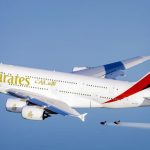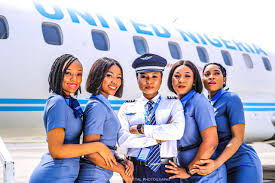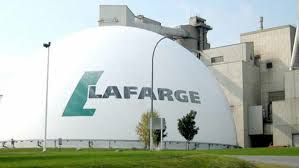How airlines shortchange NCAA – Ojukutu

The National Civil Aviation Regulations requirements for all airlines to remit five per cent of their ticket sales and cargo sales to the Nigerian Civil Aviation Authority (NCAA) which had led to a spat between airlines and the carriers cannot be changed or suspended overnight, according to former Commandant, Murtala Muhammed Airport, Lagos, Grp. Capt. John Ojikutu (rtd).
Similarly, Ojikutu noted that N80 billion would have been generated as ticket sales by the domestic airlines if each passenger had paid an average of N16, 000, adding that altogether, the ticket sales could not have been less than N680 billion for each year as against the N385 billion and N330 billion recorded for 2015 and 2016 respectively.
“Therefore, the expected ticket sales charges (TSC) to NCAA in those two years should not be less than N68 billion.”
He stated that government through the NCAA has been losing substantial revenue from the TSC and Cargo Sales Charges because most of the operating airlines were not complying with the respective regulations.
He accused the carriers of short-changing the aviation regulatory body by not their failure to remit what they had already collected from passengers on behalf of NCAA.
Ojikutu blamed the agency for the situation because of its passiveness in ensuring that the airline operators implement the various provisions of the regulations sufficiently before now.
Specifically, the regulations require: all domestic and international airlines operating in Nigeria to forward to the authority through electronic platform all relevant documents as Flown Coupons, Passengers and Cargo Manifest, Air Waybills, Load Sheets etc within 48 hours after each flight (NCAR 18.12.1.1).
The Regulations further require that all airlines join IATA / BSP specifically for the purpose of remitting five per cent sales charges to the authority and should execute a contract with the authority to that effect, (NCAR 18.12.1.2).
Additionally, all sales charges or royalties shall be paid in the currency in which they are being charged (NCAR 18.12.1.5) and all foreign airlines shall submit cargo manifest and continue to pay royalties in a manner prescribed by the Authority before the flight is approved to land or take off.(NCAR 18.12.1.3).
Ojikutu disclosed that in 2015 and 2016, the ticket sales submitted by the airlines to the NCAA and presented at a press briefing early this year were respectively N385 billion and N330 billion from about 15 million passengers in each of the two years.
To him, about five million passengers were recorded as international passengers and 10 million as the local passengers.
“If we assume that two million of the 5 million international passengers were outbound, and bought their tickets in Nigeria each at an average price of N300, 000, the ticket sales would be N600 billion. The values of the tickets sales were probably based on the figure presented by the airlines themselves which the NCAA had no system in place to verify as the figures did not match known data or passenger traffic statistics available in the FAAN records. NCAA therefore needs help.”
Ojikutu reiterated that the cargo sales charge collected by the NCAA would not be too different from the Tickets Sales Charge collected if the records available from a source in the industry that has been working with the NCAA are considered.
He stated that the records showed that the airlines paid NCAA a total of N600 million as Cargo Sales Charges for a period of three years (2007-2010), regretting that unfortunately, there were no records to show the values, statistics or quantity of cargo airlifted by the airlines that generated the amount.
He stated that the unfortunate thing about the rancour between the NCAA and the airline operators is that over the years, they have all been benefiting one way or the other from the statutory revenue through various debt concessions and intervention funds.
According to him, the era of free meal is over when airlines would rather collect intervention funds at six per cent interest rate or less than to pay charges on aeronautical services including landing and parking fees; where they would rather buy foreign exchange at concessional rate than to pay custom duties or repatriate their foreign exchange earnings home from abroad.
He further stated that while the domestic airlines have defaulted severally in statutory remittance and payment on charges, they also complain generally of high charges on airport and aeronautical facilities, services, including landing and parking, multiple charges and high cost of fuel etc.
He hinted that discerning minds among the industry stakeholders have tried to examine all these and have severally concluded that the airlines are the architects of the travails of the industry.
Ojikutu said airline operators are in denial of the true situation of the domestic market, stressing that without a conscious review of air fares by the airlines in line with the prevailing dynamics in the market, their business plans and the sustenance of their operations in the industry will come to naught.
“It does not make economic sense for them to be charging N16, 000 for a flight of one hour to Abuja, whereas, a flight of six hours to London is N300, 000 and N100, 000 for a flight of one hour to Accra. In the same vein, a flight of one hour from Nairobi to Mombasa in Kenya costs $50 or 5000 Kenya Shillings; at the present Dollar/ Naira rate that translate to about N150,000.”
The domestic airlines, he said should therefore not expect to sustain their operations and be paying for all the various services and statutory charges by charging N16, 000 on a flight of one hour.
At the rate of N300 Naira/Dollar, Ojikutu stated that the airlines do not need the government authority to increase the flight fare from Lagos to Abuja to $50 or N150, 000; saying anything short of this price is for everyone including government officials to live in denial of the market forces in the industry.
He called on domestic airlines to endeavour to meet their obligations on the sustenance of their operations and payment of statutory charges is how to reduce their operational cost.
################################










